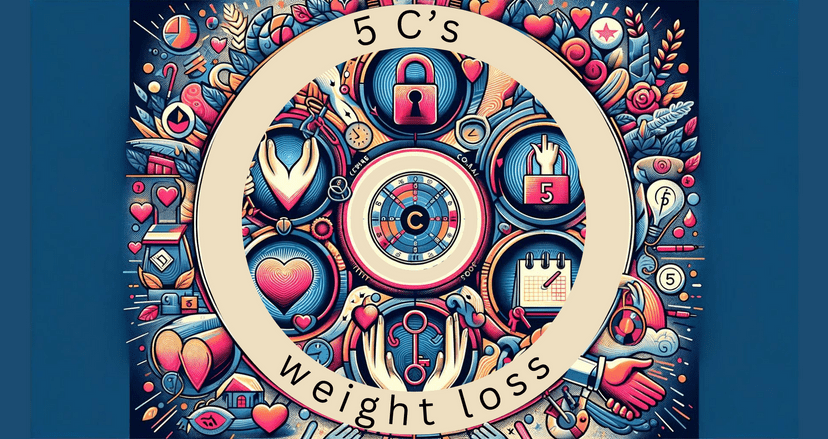How often should I weigh myself?

Understanding the Impact of Weighing Frequency
One of the most common questions posed by individuals embarking on a weight loss journey, striving to maintain their current weight, or those simply aiming to adopt a healthier lifestyle is: how often should I weigh myself? The frequency of stepping onto the scale is a topic that has been the subject of numerous studies and debates.
Whether the goal is weight loss, weight gain, weight maintenance, or just tracking health progress, determining the right weighing frequency is crucial. While some research suggests that daily weigh-ins can help to monitor progress, instill discipline, and reinforce healthy habits, there is also a considerable body of evidence pointing to the potential negative psychological effects associated with frequent weighing, such as the development of obsessive behaviors and body dissatisfaction.
The Psychological Effects of Frequent Weighing
Understanding the psychological impact of frequent weighing is a
n essential part of the broader discussion. Increased weighing frequency can sometimes lead negative psychological outcomes, heightening anxiety levels and potentially leading to obsessive behaviors. Body image dissatisfaction, self-esteem problems, and even eating disorders can be exacerbated by daily, or indeed multiple daily weigh-ins.
On the flip side, regular – yet not obsessively frequent – weigh-ins can aid individuals to maintain accountability and facilitate the development of healthier habits. By establishing regular, healthy weighing patterns, individuals can better understand the natural fluctuations in their body weight, helping them accurately track their progress without causing unnecessary distress or developing an unhealthy relationship with the scale.
Weighing Frequency and Weight Management
From a weight management perspective, the frequency one chooses to weigh themselves can significantly influence motivation and the perception of progress. Regularly tracking weight progress can offer immediate feedback about the effectiveness of dietary and exercise regimens. However, it's important to recognize that body weight can naturally fluctuate daily due to a variety of reasons. Thus, daily weigh-ins could potentially provide misleading perceptions of progress if these natural fluctuations are misinterpreted as weight gain or loss.
Weekly weigh-ins, by contrast, tend to offer a more accurate impression of your progress. The weekly approach can buffer against the natural daily weight fluctuations and provide a clearer picture of long-term trends, enabling a more realistic and healthy approach to weight management. Deciding to monitor your weight on a weekly basis can reduce the risk of becoming overly fixated on daily weight changes and help you stay focused on longer term goals.
Finding Your Balance: Weighing Too Often vs. Not Enough
When it comes to the balance between weighing too often and not enough, the ‚golden middle way‘ heavily relies on each individual’s psychological resilience, their personal weight management goals, and their ability to interpret their weight data accurately and constructively. You are encouraged to reflect on your emotional responses to the practice of weighing, and your interpretation of the data obtained. Combining all these factors, you should establish a weighing routine that both supports your ability to manage your weight healthily and doesn't negatively impact your psychological well-being.
In summary, you ought to use the scale as a tool to assist you on your health journey but avoid allowing it to dictate your self-worth or lead you onto an unhealthy path of obsession and anxiety. Achieving the right balance in how often you weigh yourself is crucial to ensuring you maintain a positive, long-term commitment to your health and well-being.
Recommendations from Health Professionals
The frequency of weighing oneself can vary significantly, depending on the advice from various health professionals. Let's delve deeper into the specific recommendations from dietitians, personal trainers, and psychologists to present a balanced view.
Daily Weighing: Pros and Cons
Whether to weigh oneself daily or not often creates controversy among professionals. Some see it as a way to keep consistent tabs on weight and be accountable.
For instance, dietitians often suggest daily weighing for those trying to lose weight. The rationale is that it helps to identify small weight increases before they become larger issues. However, this monitoring method might not suit everyone, as it could potentially lead to an unhealthy obsession with weight and numbers.
On the other hand, some personal trainers advocate for daily weighing as a form of immediate feedback. They believe it can help clients increase self-awareness about how specific behaviors, such as eating salty foods or not getting enough sleep, affect weight.
Weekly Weigh-Ins: Benefits for Long-Term Tracking
If daily weighing isn't your preferred method, weekly weigh-ins can be a good alternative. It reflects longer-term trends and can be less likely to pick up small, often inconsequential daily weight variations.
Psychologists, alongside other health professionals, commonly recommend weekly weigh-ins, as it's less likely to create stress associated with daily fluctuations. Weight is influenced by several factors, including hormonal variations, fluid balance, and diet. Therefore, weighing in less frequently can give you a more accurate picture of your long-term weight progress while avoiding daily obsession.
Less Frequent Weighing: When to Consider It
There are instances, though, where even regular weekly weigh-ins might not be the best approach. Less frequent weighing might be suitable for individuals who have a history of disordered eating or any psychological condition that could be triggered by frequent confrontation with their weight.
On this note, psychologists heavily stress the need for these individuals to focus more on healthy behaviors rather than the scale's number. Measuring success by how you feel or judging progress by an enhanced quality of life can be more empowering and sustainable.
In conclusion, the right frequency of weighing oneself is highly individualized. It would be beneficial to consult a health professional, who could give personalized advice according to your physical health, mental wellness, and long-term goals.
Creating a Healthy Weighing Routine
Establishing a suitable weighing routine is a vital aspect of any health and fitness journey. It aids in keeping track of your progress and reflecting on your efforts. However, it’s important to ensure this key habit does not fuel obsession or negative self-perceptions. Herein, a sensible balance should be struck between monitoring progress and maintaining a positive, realistic viewpoint about your body weight.
The following advice, backed by scientific evidence, will help you devise a healthy weighing routine that supports your fitness goals without fostering an unhealthy fixation with the scale.
Best Practices for Weighing Yourself
The frequency of weighing and the conditions under which you measure your weight can greatly influence the results.
-
It’s widely recommended to weigh yourself once a week. Why not daily? Weight can fluctuate drastically day-to-day due to factors such as water retention, hormonal changes, and dietary intake. Weighing yourself weekly provides a more accurate picture of your weight trend and can prevent unnecessary concern over minor fluctuations that are perfectly normal.
-
Consistency is key when weighing yourself. Ensure you use the same scale each time and weigh yourself under the same conditions preferably in the morning, naked or lightly clothed, and after using the bathroom but before eating or drinking anything.
Understanding and Interpreting Weight Fluctuations
Understanding that weight fluctuation is a normal occurrence in everyone’s life is vital to a healthy perspective on weight management.
-
Body weight can vary by a few pounds within a single day due to factors such as hydration status, food intake, and even the type of clothing worn.
-
Weight gain during menstrual cycles is also a common occurrence in women due to hormonal variations and water retention.
-
A sudden rise in your body weight might result from increased sodium intake, which can cause your body to retain more water.
Remember, it's crucial to recognise these fluctuations for what they are–natural and temporary changes, rather than long-term weight gain.
Alternative Metrics to Measure Progress
While the scale can provide valuable data, it shouldn't be your only metric for assessing your health and fitness progress. Alternative measurements offer a broader perspective and can serve as better indicators of overall health and fitness.
-
Body Composition: Focusing on the proportion of fat to lean muscle mass in your body known as body composition can be significantly more insightful than weight alone. An increase in muscle mass could mean you weigh more, despite looking leaner and being healthier.
-
Clothes Fit: If your clothes fit better than before, it's a clear indication you're making progress, regardless of the number on the scale.
-
Physical Performance: Enhanced stamina and strength, improved balance, flexibility, or speed can all stand as powerful testaments to your growing health and fitness.
By applying these measures alongside regular but sensible use of the scales, you'll encourage a more holistic and healthier view of your progress. It further emphasises on the importance of overall health, fitness, and well-being rather than a mere number on a scale.
In Summary
In essence, weighing frequency is a crucial aspect of weight management, and the right balance can help improve long-term health and mental well-being. The frequency of stepping onto the scale can have significant psychological effects, and striking a balance between too often and not enough is important.
While daily weighing may help some individuals maintain accountability and track their health progress, it can also lead to negative psychological outcomes for others, such as obsessive behaviors and body dissatisfaction. On the other hand, weekly weigh-ins can provide a clearer picture of long-term weight trends and are less likely to result in an unhealthy obsession with daily body weight fluctuations.
It's recommended to engage in a practice where you sustain a healthy relationship with your scale and use it as a tool to support your health journey, rather than allow its numbers to dictate your self-worth. Incorporating the advice of health professionals such as dietitians, personal trainers, and psychologists can also help you create a balanced and suitable weighing routine.
Here is a suggested plan of action and step-by-step action steps to implement the insights from this post:
-
Step 1: Begin by reflecting on your emotional response to weighing and how you interpret the data obtained from the scale. Are you often anxious or obsessed with the numbers? Do they heavily influence your self-perception?
-
Step 2: Determine a weighing frequency that suits you, considering your psychological resilience and weight management goals. This can range from daily to weekly or even less frequently, depending on your individual needs.
-
Step 3: Establish a routine where you weigh yourself under consistent conditions, preferably in the morning, after using the bathroom but before eating or drinking, and either naked or lightly dressed.
-
Step 4: Learn to understand and interpret weight fluctuations
as natural and temporary results of factors such as hormonal changes, fluid balance, and diet.
-
Step 5: Consider alternative metrics to assess your health and fitness progress, such as body composition, how your clothes fit, and physical performance indicators like stamina, strength, balance, and speed.
-
Step 6: Finally, consider consulting a health professional for personalized advice to determine the most suitable weighing frequency and approach for your physical health, mental wellness, and long-term goals.
Remember, the ultimate goal is to maintain and improve your overall health, fitness, and well-being, rather than focusing solely on the numbers on the scale.













